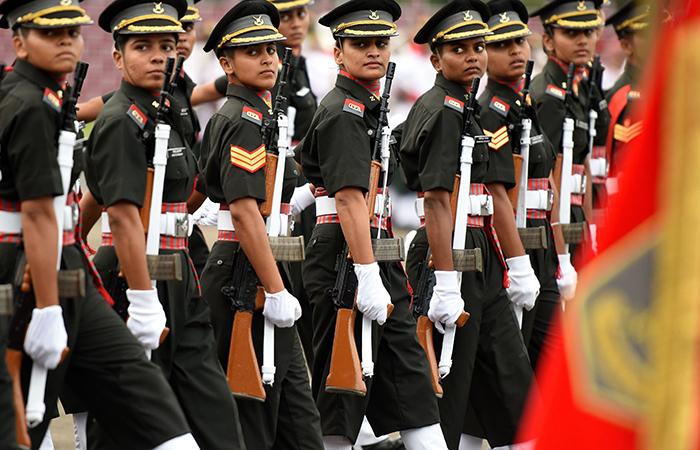New Delhi: Finally the fairer sex is having their say in the Indian Army. Thirty-nine women Army officers have got permanent commission after winning a legal battle in the Supreme Court. The apex court ordered the government to ensure their new service status is granted within seven working days.
There are two types of commission in the Indian Army. A permanent position means that the job is till retirement. On the other hand, the short service commission means a career for 10 years. However, those in the short service commission can either opt for retirement or seek a permanent commission. In case an officer is not selected for permanent commission, then the person can seek a four-year extension.
A total of 71 women Short Service Commission officers were denied permanent commission by the Indian Army. Then they had gone to the Supreme Court seeking permanent commission in the Indian Army.
The Centre told the court that of the 71 officers, 39 were found eligible for permanent commission, seven were medically unfit and 25 had ‘issues of discipline’.
The Supreme Court then asked the Centre to give a detailed report explaining the reasons why the 25 were not eligible for permanent commission. The apex court also told the government not to relieve any of the officers from service
The court had told the government October 1 not to relieve any of the officers from service. A two-judge bench of Justice DY Chandrachud and Justice BV Nagarathna, who is in line to become the first woman Chief Justice of India, was hearing the matter.
Senior lawyers V Mohana, Huzefa Ahmadi and Meenakshi Arora were representing the women officers. They informed the apex court that their disqualification was against the Supreme Court’s judgment in March, when it directed the Indian Army to grant permanent commission to all women short service commission officers who met the criteria.
The government was given three months to complete this process. The Army’s evaluation criteria for granting permanent commission to women officers were ‘systematically discriminated against them’, the Supreme Court had said at the time.

